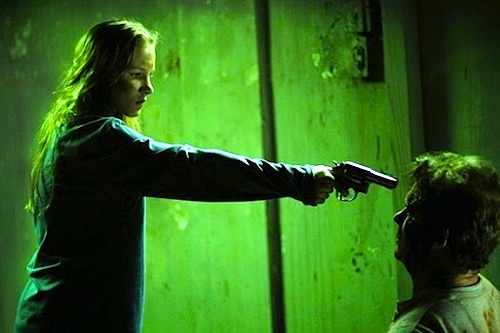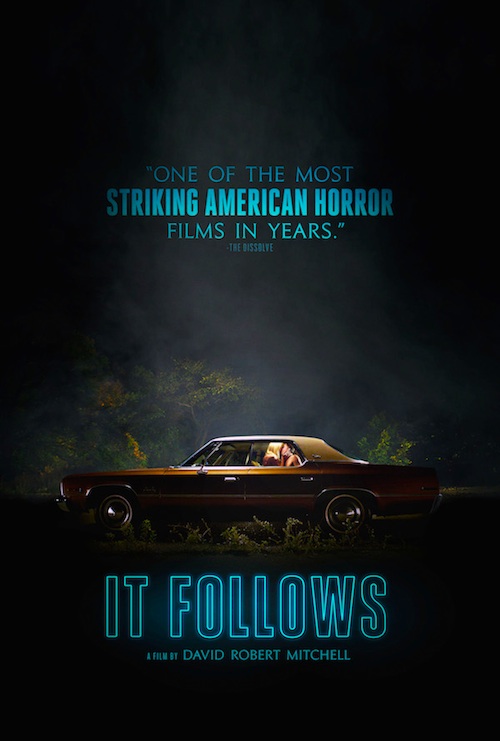 By Joe Bendel. Don’t say payback is a you-know-what and whatever you do, don’t say it wasn’t personal. Eve is in no mood to hear it. After months of captivity, she has turned the tables on her sex fiend tormentor. However, her revenge gets a little more complicated when she gets a sense of the scope of his operation in José Manuel Cravioto’s Reversal, which screens during the 2015 Sundance Film Festival.
By Joe Bendel. Don’t say payback is a you-know-what and whatever you do, don’t say it wasn’t personal. Eve is in no mood to hear it. After months of captivity, she has turned the tables on her sex fiend tormentor. However, her revenge gets a little more complicated when she gets a sense of the scope of his operation in José Manuel Cravioto’s Reversal, which screens during the 2015 Sundance Film Festival.
The odious Phil always said Eve was special, but he never knew how right he was. After cold cocking him with a loose brick, Eve fashions a choker-noose to keep him controllable, but at arm’s length. She nearly capped him right then and there, but held off once he revealed the existence of other women at various hiding places. Fueled by outrage, Eve forces the sexual predator to take her to each one of them, but every successive trip never turns out to be as simple as she hopes.
You have to give Cravioto credit for understanding the point of a vicarious revenge thriller. We don’t want to mention any names, like Eli Roth, but there are a number of frustrating films playing in Sundance in which we wait for the poor central characters to turn the tables on their tormentors, but the sadistic antagonists just keep batting them down at every turn. That’s just no fun to watch.
In contrast, Reversal starts with the table-turning and follows Eve’s efforts to maintain the upper hand going forward. Granted, it is a dark and disturbing milieu to wade through, but the resulting comeuppance is undeniably satisfying. Thankfully, Cravioto never cheapens the proceedings with a lecture on violence or a lame ironic ending.

Frankly, it is also rather meta-creepy that Richard Tyson, the star of Zalman King’s 1980s softcore sex dramas plays the thoroughly gross Phil, but he is effective in the part. Likewise, Tina Ivlev is pretty awesome as the empowered and embittered Eve. There are too many flashbacks mixed into the action and none of its third act reveals are remotely as surprising as screenwriters Rock Shaink, Jr. and Keith Kjornes think they are, but the film delivers what it promises.
Frankly, Reversal is exactly the sort of film the Zoë Bell vehicle Raze and the I Spit on Your Grave reboot should have been. Yes, it is a sleazy exploitation film, but it brings female victimization to an abrupt halt. If you want to see some payback, it has your payback right here. Recommended for fans of grindhouse vengeance, Reversal screens again tomorrow (1/27) and Thursday (1/29) in Park City, as part of this year’s Sundance.
LFM GRADE: B+
Posted on January 26th, 2015 at 5:57pm.




